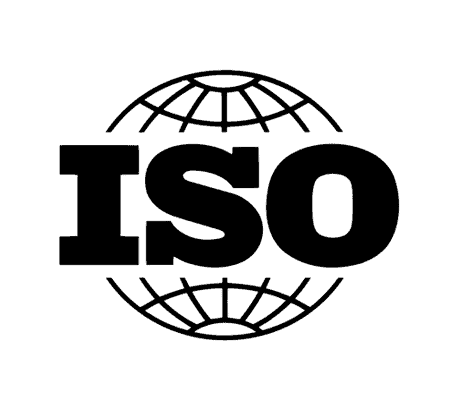
In today’s fast-paced and ever-evolving business environment, leading with change is not just a strategy but a necessity.
Embracing and accepting change as a constant part of organisational life allows leaders and their teams to adapt swiftly to new circumstances, ensuring they remain responsive, competitive, and successful.
Organisations that can pivot quickly and efficiently are better positioned to seize opportunities, overcome challenges, and maintain profitability in a dynamic market.
By fostering a culture that welcomes change, leaders can guide their organisations toward sustained growth and resilience.
What does it mean to enable change in an organisation?
Key to enabling change in an organisation is understanding the stages of transition, leveraging emotional intelligence, and adopting a people-centric approach. These elements are crucial for managing change effectively and ensuring that the organisation can adapt and thrive in the face of new challenges:
- Understanding the Dynamics of Transitions: Change involves multiple stages, each with challenges and opportunities. Managers need to understand these stages to effectively guide their teams. Recognising that change unfolds over time helps plan strategies that facilitate smoother transitions.
- Leveraging Emotional Intelligence: Emotional intelligence (EI) is crucial during change. EI involves understanding and managing emotions in ourselves and others. Addressing emotional responses helps maintain team cohesion and ensures a smooth transition. Managers with high EI can better support their teams, fostering an environment where people feel understood and valued.
- Adopting a People-Centric Approach: Effective change management focuses on the people within the organisation. By prioritising employee well-being, organisations can boost morale and increase the success of change initiatives. This approach ensures employees feel heard and valued, maintaining engagement and productivity during transitions.
How Can You Enable Change?
Enabling change in an organisation involves a multifaceted approach considering the processes and the people involved. Here are several strategies to help you effectively enable change:
- Accompanying Transitions intentionally: When managers understand the different stages of change, they can more purposefully and explicitly help their teams navigate through emotional and practical transitions.
- Clear Communication: Transparent and frequent communication is essential. Clear plans ensure everyone is informed and concerns are addressed promptly, building trust and keeping employees updated.
- Leaders Embodying the Change: Leaders must model the desired changes. When leaders embrace and demonstrate change, it motivates others to follow suit.
- Empathy and Support: Empathy is key to understanding and addressing employees’ emotions. Empathetic managers create a safe space, fostering trust and resilience within the team.
- Continuous Learning and Development: Providing resources and opportunities for learning shows a commitment to employee growth and well-being, equipping teams with new skills.
- Employee Feedback Mechanisms: Regular feedback through surveys, focus groups, or suggestion boxes gathers insights on change effectiveness, allowing for adjustments and staying connected with employees’ sentiments.
- Strengths-Based Management: Focusing on individual strengths rather than weaknesses transforms the workplace, empowering team members and leveraging their abilities for the organisation’s benefit.
- Change Champions: Appointing change champions within the organisation inspires others, addresses concerns, and helps implement new initiatives smoothly, driving support for change.
- Coaching and Mentoring Programs: Implementing coaching and mentoring supports employees through change, boosting confidence and ensuring successful adaptation to new processes.
By integrating these strategies, organisations can enable change more effectively and ensure that transitions’ practical and emotional aspects are managed well.
This comprehensive approach facilitates smoother transitions and builds a resilient and adaptive workforce.


How Does UNLOQ Do This for Organisations?
At UNLOQ, we guide organisations through change with a comprehensive approach:
- Masterclasses and Webinars: In-depth sessions on change management, providing insights and tools tailored to your organisation.
- Team Transition Support: Guidance and resources for smooth transitions during restructuring, strategy shifts, or new technology adoption.
- Peer Support Facilitation: Sessions using case studies to share experiences and solutions, fostering a collaborative environment.
- Individual Coaching: Tailored coaching for managers to develop the skills and confidence needed to lead teams through transitions effectively.
Our services help organisations embrace change with confidence, fostering adaptability and continuous improvement. We unlock.
Contact UNLOQ for an obligation-free conversation to see how their human interaction, technology, and science-based approach to innovative learning and development solutions can help your organisational change management unlock transformation.
Continue to professionalize and optimize
In addition to the continued development of our UNLOQ Campus coaching platform, we also accelerated the ISO 27001 certification process. This process had already started in 2019 and was aimed at improving our internal processes and increasing the security of customer information. Especially at a time when more and more work is done online and remotely, it is a challenge to ensure maximum confidentiality of information. Obtaining the ISO certificate is not easy; as an organization you have to comply with no less than 96 standards. In 2020, we secured our first certification. In 2023, we passed another 3-year audit which means we are now ISO 27001:2022 certified! This makes us one of the few (international) L&D organizations with this latest version of ISO 27001.




